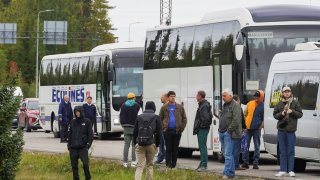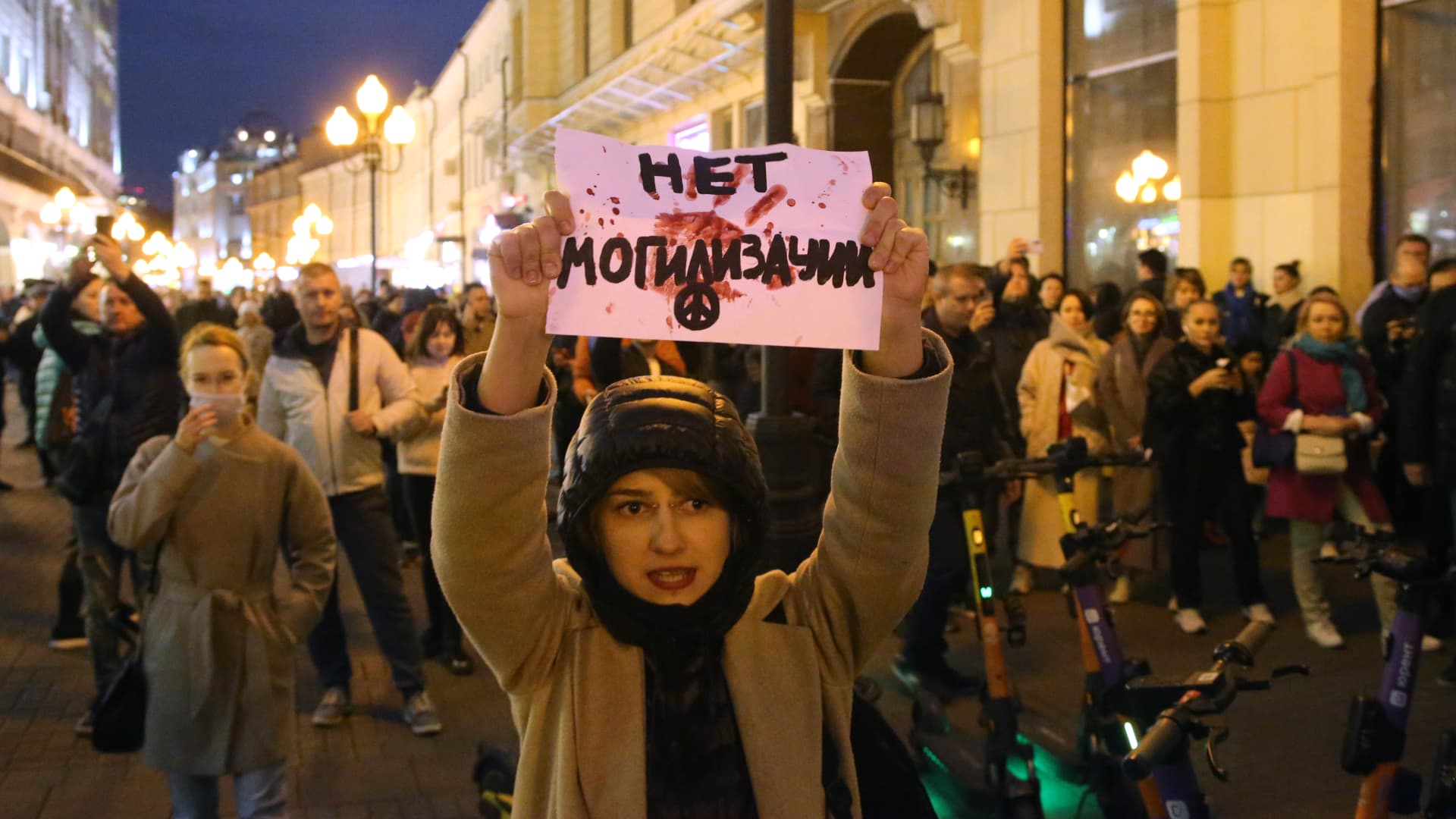
- Markets in Moscow have been in general decline since President Vladimir Putin announced a military mobilization last week.
- Russia called up 300,000 reservists after losing large swathes of territory to a surprise Ukrainian counteroffensive in recent weeks.
- The MOEX Russia Index was down 6.9% by early afternoon in Europe, having fallen as much as 7.4% earlier in the session.

Russian stocks fell sharply on Monday to reach their lowest point since Feb. 24, the day the first Russian troops entered Ukraine.
The MOEX Russia Index was down 6.9% by early afternoon in Europe, having fallen as much as 7.4% earlier in the session.
Get top local stories in Southern California delivered to you every morning. >Sign up for NBC LA's News Headlines newsletter.
Markets in Moscow have been in general decline since President Vladimir Putin announced a military mobilization last week, setting the Russian economy on a war footing and likely prolonging the conflict in Ukraine.
"From a macro perspective, the main implications for Russia's economy could come through additional Western sanctions, increased pressure on the public finances, and greater issues facing Russia's labour supply," Capital Economics Senior Emerging Markets Economist Liam Peach said in a note Friday.
Russia called up 300,000 reservists after losing large swathes of territory to a surprise Ukrainian counteroffensive in recent weeks, and the Kremlin is now holding "referendums" in parts of eastern Ukraine in a bid to consolidate Russia's presence there.
Money Report
With some EU member states calling for more Russian banks to be cut off from the SWIFT payments system, U.S. senators proposing stricter secondary sanctions for the G-7 oil price cap, and talk of EU-wide oil price limits, Peach suggested that the Russia energy sector – a key pillar of economic strength – could come under threat.
"Calling up reservists and prolonging the conflict will come at a cost. Russia's federal budget swung into a large deficit in August and, for the government to maintain its prudent management of the public finances, tax hikes will be needed," Peach said.
The call-up of 300,000 reservists, alongside reports of many military age citizens fleeing the country to avoid conscription, could also compound Russia's labor supply problems, he suggested.
"Official figures show total outward migration of 216,000 in the first half of the year and unofficial figures put the number closer to half a million," Peach said.
"For a country with a declining working-age population this is a big loss of labour and could stifle Russia's growth prospects in both the short and medium term."






